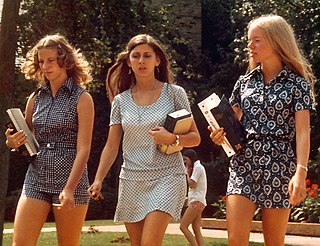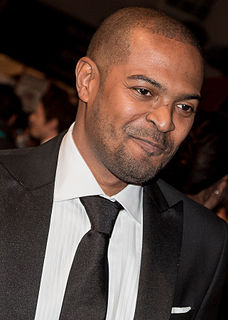Neoteny, also called juvenilization, is the delaying or slowing of the physiological, or somatic, development of an organism, typically an animal. Neoteny is found in modern humans compared to other primates. In progenesis or paedogenesis, sexual development is accelerated.

A courtesy name, also known as a style name, is a name bestowed upon one at adulthood in addition to one's given name. This practice is a tradition in the East Asian cultural sphere, including China, Japan, Korea, and Vietnam.
Biologically, an adult is an organism that has reached sexual maturity. In human context, the term adult has meanings associated with social and legal concepts. In contrast to a "minor", a legal adult is a person who has attained the age of majority and is therefore regarded as independent, self-sufficient, and responsible. The typical age of attaining legal adulthood is 18, although definition may vary by legal rights, country, and psychological development.
A young adult is generally a person in the years following adolescence. Definitions and opinions on what qualifies as a young adult vary, with works such as Erik Erikson's stages of human development significantly influencing the definition of the term; generally, the term is often used to refer to adults in approximately the 20s and 30s age range. The young adult stage in human development precedes middle adulthood.

Youth is the time of life when one is young. The word, youth, can also mean the time between childhood and adulthood (maturity), but it can also refer to one's peak, in terms of health or the period of life known as being a young adult. Youth is also defined as "the appearance, freshness, vigor, spirit, etc., characteristic of one, who is young". Its definitions of a specific age range varies, as youth is not defined chronologically as a stage that can be tied to specific age ranges; nor can its end point be linked to specific activities, such as taking unpaid work, or having sexual relations.
Sexual maturity is the capability of an organism to reproduce. In humans it might be considered synonymous with adulthood, but here puberty is the name for the process of biological sexual maturation, while adulthood is based on cultural definitions.

The age of majority is the threshold of adulthood as recognized or declared in law. It is the moment when minors cease to be considered such and assume legal control over their persons, actions, and decisions, thus terminating the control and legal responsibilities of their parents or guardian over them. Most countries set the age of majority at 18, but some jurisdictions have a higher age and others lower. The word majority here refers to having greater years and being of full age as opposed to minority, the state of being a minor. The law in a given jurisdiction may not actually use the term "age of majority". The term typically refers to a collection of laws bestowing the status of adulthood. Those under the age of majority are referred to as minors and may be legally denied certain privileges or rights.
Erikson's stages of psychosocial development, as articulated in the second half of the 20th century by Erik Erikson in collaboration with Joan Erikson, is a comprehensive psychoanalytic theory that identifies a series of eight stages that a healthy developing individual should pass through from infancy to late adulthood. According to Erikson's theory the results from each stage, whether positive or negative, influences the results of succeeding stages. Erikson published a book called Childhood and Society around the 1950s that made his research well known on the eight stages of psychosocial development. Erikson was originally influenced by Sigmund Freud's psychosexual stages of development. He began by working with Freud's theories specifically, but as he began to dive deeper into biopsychosocial development and how other environmental factors affect human development, he soon progressed past Freud's theories and developed his own ideas.
Middle age is the period of age beyond young adulthood but before the onset of old age. The exact range is disputed; sources generally place middle adulthood as starting no earlier than 35 and ending no later than 65. This phase of life is marked by gradual physical, cognitive, and social changes in the individual as they age.

Noel Anthony Clarke is a British actor, screenwriter, director and comic book writer. Rising to prominence for playing Mickey Smith in Doctor Who (2005–2010), he played Sam in the films Kidulthood (2006), Adulthood (2008) and Brotherhood (2016), which he also wrote and directed. He played Aaron Bishop in the TV series Bulletproof (2018–2021), which he also wrote and produced.
A birth name is the name of a person given upon birth. The term may be applied to the surname, the given name, or the entire name. Where births are required to be officially registered, the entire name entered onto a birth certificate or birth register may by that fact alone become the person's legal name.
Personality development encompasses the dynamic construction and deconstruction of integrative characteristics that distinguish an individual in terms of interpersonal behavioral traits. Personality development is ever-changing and subject to contextual factors and life-altering experiences. Personality development is also dimensional in description and subjective in nature. That is, personality development can be seen as a continuum varying in degrees of intensity and change. It is subjective in nature because its conceptualization is rooted in social norms of expected behavior, self-expression, and personal growth. The dominant viewpoint in personality psychology indicates that personality emerges early and continues to develop across one's lifespan. Adult personality traits are believed to have a basis in infant temperament, meaning that individual differences in disposition and behavior appear early in life, potentially before language of conscious self-representation develop. The Five Factor Model of personality maps onto the dimensions of childhood temperament. This suggests that individual differences in levels of the corresponding personality traits are present from young ages.
Emerging adulthood refers to a phase of the life span between late adolescence and early adulthood, as initially proposed by Jeffrey Arnett in a 2000 article from the American Psychologist. It primarily describes people living in developed countries, but it is also experienced by young adults in urban wealthy families in the Global South. The term describes young adults who do not have children, do not live in their own homes, and/or do not have sufficient income to become fully independent. Arnett suggests emerging adulthood is the distinct period between 18 and 29 years of age where young adults become more independent and explore various life possibilities.
Chaoyang University of Technology is a university in Wufeng District, Taichung, Taiwan. Founded in 1994. Originally named Chaoyang Institute of Technology. In 1997, CYUT was designated by the Ministry of Education as a University of Technology, the highest level in the technological and vocational education system within the R.O.C.

Adulthood is a 2008 British drama film written and directed by Noel Clarke. It is a sequel to 2006's Kidulthood and stars Clarke, Adam Deacon, Scarlett Alice Johnson, Femi Oyeniran, Red Madrell, Jacob Anderson, Ben "Plan B" Drew, Nathan Constance, Cornell John and Danny Dyer. In the film, Sam (Clarke) tries to change his life following a six-year prison sentence for killing Trife but a new gang led by Jay (Deacon) intend to avenge Trife by killing Sam.
Johann Georg Mozart was a bookbinder who lived in Augsburg, Germany, in the 17th and 18th centuries. He was the father of Leopold Mozart and the paternal grandfather of Wolfgang Amadeus Mozart.

Plagiosaurus is an extinct genus of temnospondyl amphibian. They were paedomorphic, retaining the larval gills on adulthood. They had weak simplified vertebrae, consisting of large intercentra and neural arches, the stereospondyl condition.
Stanton v. Stanton, 421 U.S. 7 (1975), is a United States Supreme Court case which struck down Utah's definitions of adulthood as a violation of equal protection: females reached adulthood at 18; males at 21.
Religious identity is a specific type of identity formation. Particularly, it is the sense of group membership to a religion and the importance of this group membership as it pertains to one's self-concept. Religious identity is not necessarily the same as religiousness or religiosity. Although these three terms share a commonality, religiousness and religiosity refer to both the value of religious group membership as well as participation in religious events. Religious identity, on the other hand, refers specifically to religious group membership regardless of religious activity or participation.
In genre studies, a coming-of-age story is a genre of literature, theatre, film, and video game that focuses on the growth of a protagonist from childhood to adulthood, or "coming of age". Coming-of-age stories tend to emphasize dialogue or internal monologue over action, and are often set in the past. The subjects of coming-of-age stories are typically teenagers. The Bildungsroman is a specific subgenre of coming-of-age story.






